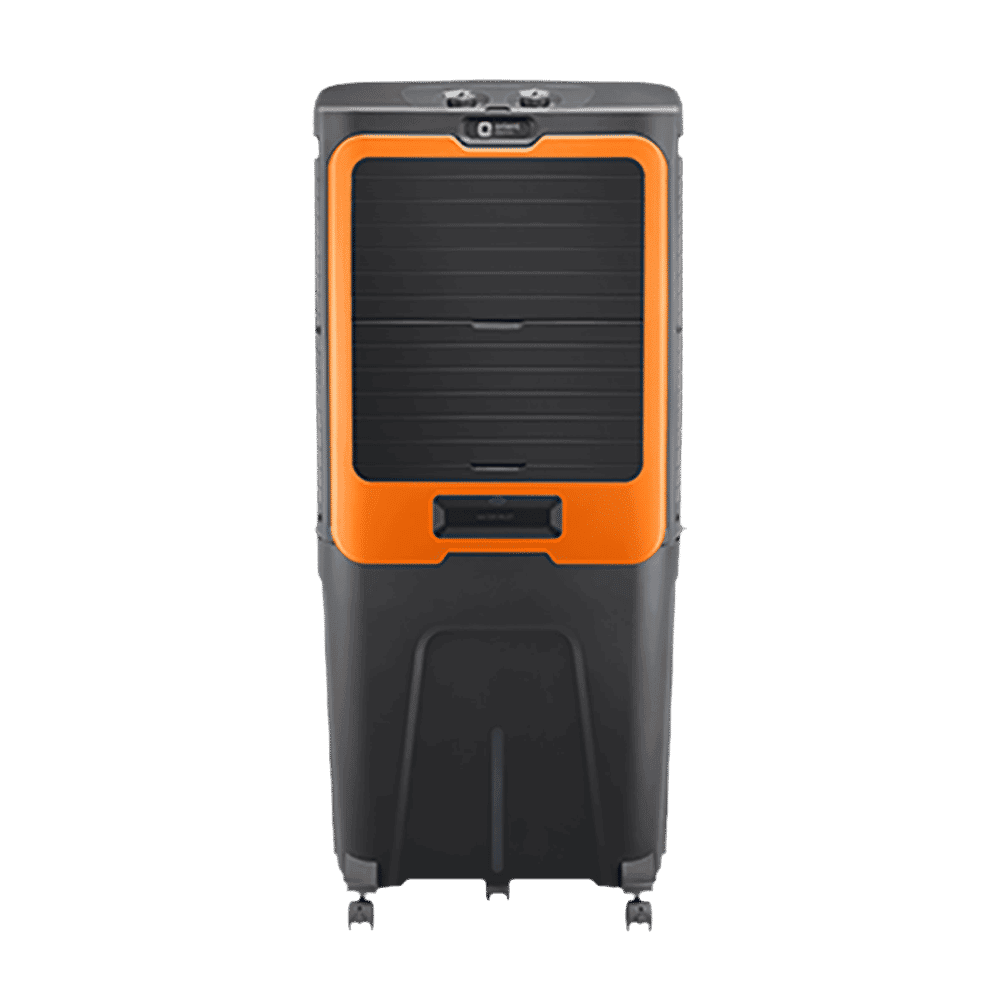
Home Appliances
•05 min read

Buy Orient Ultimo 88 Litres Desert Air Cooler with Aerofan Technology (Ice Chamber, Dark Grey) online at best prices from Croma. Check product details, reviews & more. Shop now!
Air coolers have become a popular cooling solution during hot Indian summers due to their energy efficiency and lower costs. However, while they cool the air, there are some underlying health concerns that often go unnoticed. In this article, we explore seven air cooler disadvantages for health, empowering you to make informed decisions, especially if you or your loved ones face respiratory concerns or allergies.
Air coolers work on the principle of evaporative cooling, drawing warm air from outside and passing it over wet pads to lower the temperature. Unlike air conditioners, which use refrigerants and cooling coils, air coolers are more eco-friendly but have their own set of challenges.
The increased humidity generated by air coolers may seem beneficial initially, but it can affect indoor air quality. Excess moisture promotes the growth of mold and dust mites and leads to other airborne contaminants, which may pose several health issues.
One of the primary concerns involves the increased indoor humidity that can foster mold growth, a key contributor to respiratory issues. These air cooler health risks are especially significant for individuals prone to respiratory complications.
For asthma sufferers, the extra moisture and possible allergens circulating in the air can trigger or exacerbate asthma symptoms. Regular exposure to high humidity and mold growth in and around the cooler can lead to worsening respiratory conditions.
Allergens such as dust and pollen can accumulate in the cooling mechanism of these devices. This accumulation, combined with rising humidity, means that air cooler allergies may set in or worsen existing allergy symptoms.
Improper maintenance of these devices promotes the growth of mold in and around the cooler. Mold spores, when circulated in the air, not only cause allergic reactions but can also have a more severe impact on individuals with respiratory issues.
While a certain level of moisture is essential, high humidity indoors can lead to a variety of health issues including skin irritation and respiratory discomfort. This increase in moisture may also create an environment that supports the proliferation of bacteria and fungi.
The overall effect of elevated humidity includes discomfort for those with sensitive skin and pre-existing respiratory conditions. Clearly, maintaining balance is key to ensuring that these appliances provide comfort without compromising health.
Regular and proper maintenance is essential to mitigate the adverse effects linked with air cooler usage. Cleaning filters, pads, and water reservoirs every couple of weeks can significantly reduce health issues from air coolers. This approach supports better air quality and lessens exposure to common allergens.
A poorly maintained air cooler becomes a breeding ground for bacteria, mould, and other pollutants. This not only affects the device's efficiency but also compromises your indoor environment. Frequent upkeep is a simple yet effective way to tackle many of the air cooler side effects on health.
When comparing air coolers and air conditioners, it's important to consider their respective health impacts. While air conditioners offer controlled temperature and humidity, air coolers often lead to higher humidity levels, which can compromise indoor air quality. However, the benefits of lower energy consumption and eco-friendliness still hold appeal for many users.
Your decision between an air cooler and an air conditioner should be based on your specific needs. Consider the local climate, existing health issues, and the ability to maintain the appliance properly. For those keen on maintaining a healthy indoor environment, regular upkeep plays a critical role in minimising air cooler disadvantages for health.
Did You Know?
Regular maintenance of your air cooler not only extends its lifespan but also significantly reduces health risks associated with poor air quality.
Air coolers can pose health risks if not maintained properly, due to increased humidity that may promote respiratory issues and mold growth.
Regular cleaning, filter replacement, and ensuring proper ventilation can help mitigate health issues from air coolers.
While they do not directly cause asthma, the moisture and allergens increased by air coolers can exacerbate asthma symptoms.
It is recommended to clean your air cooler every two weeks and perform a detailed maintenance check at least once a month.
As you assess your cooling solutions, remember that balancing comfort with health is key. For those seeking advanced and health-conscious cooling appliances, exploring devices that come with additional features like air purification and dehumidification may be beneficial. Our service platforms also reward your smart choices with NeuCoins, supporting a rewarding shopping experience with benefits like express same-day delivery and unmatched after-sales support.
In summary, while air coolers offer an affordable and eco-friendly cooling solution suitable for many Indian households, recognizing and addressing their disadvantages is essential. Regular maintenance and informed choices can help mitigate these risks, ensuring that you enjoy cool, comfortable, and healthy indoor spaces.